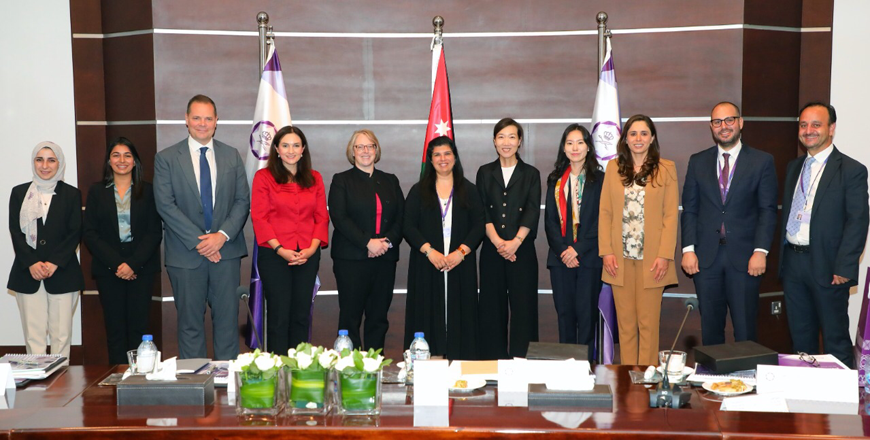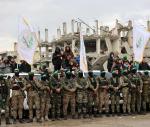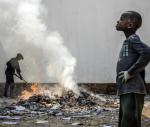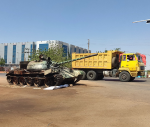You are here
Jordan-EU project on radiation safety completed
By JT - Jan 05,2021 - Last updated at Jan 05,2021
AMMAN — The European Union on Tuesday announced the completion of a cooperation project with Jordan to enhance radiation safety and the safe management of radioactive waste.
This project, financed with 1.8 million euros by the European Union’s Instrument for Nuclear Safety Cooperation (INSC), gave support to three Jordanian institutions, the Energy and Minerals Regulatory Commission (EMRC), the Jordan Atomic Energy Commission (JAEC) and the Ministry of Environment (MOENV), according to a statement posted on the website of the Delegation of the European Union to Jordan.
One major topic in the project was the licensing of SESAME (Synchrotron-light for Experimental Science and Applications in the Middle East), the statement said.
SESAME is a “third-generation” synchrotron light source (link is external) that was officially inaugurated in Allan in 2017. The region’s first major international centre of excellence, SESAME is a cooperative venture by scientists and governments of the region set up on the model of CERN.
In the project, senior European experts shared their experience on the technical aspects and the safety features of the SESAME synchrotron, and thus supported EMRC in the ongoing licensing process for the SESAME.
Once the review, assessment and inspection activities for the licence application are fulfilled, the licence for permanent operation will be granted, which will help to further scientific cooperation in the region.
The EU delegation in Jordan, complemented the overall EU support to SESAME by providing a 7-Megawatt solar system for electricity supply to the SESAME facilities under the EU support programme to green energy in Jordan.
The facility that was inaugurated in February 2019, sets SESAME as the first synchrotron in the region powered by solar energy.
Since the start of the project in 2017, numerous support activities were conducted in Jordan by about 50 senior experts from the EU.
The support continued through online tools under the adverse conditions posed by the corona pandemic in 2020. Through workshops, training courses and on-site support visits, EMRC and JAEC staff were trained and supported in their daily work.
Under the project, the legal basis on nuclear and radiation safety in Jordan was improved, while the first national report for the Joint Convention on the safety of spent fuel management and radioactive waste management was compiled by the Jordanian institutions, assisted by the European experts.
JAEC and the Consortium further developed the radioactive waste management strategy for Jordan and the action plan for its implementation, and defined a way to cope with the radioactive waste stored on the Sewaqa site.
The project was implemented through a contract with a consortium comprising ENCO of Austria, the Hungarian Atomic Energy Agency (HAEA), NRG of The Netherlands and TÜV NORD EnSys GmbH & Co KG of Germany.
The completion of the project is the result of cooperation between the partners in Jordan and the consortium, the statement said
In particular, this was realised owing to the motivation of the beneficiaries and end-users and their willingness to enhance their capacities and capabilities in the fields of radiation protection in all areas of the utilisation of ionising radiation, and of the radioactive waste management, read the statement.
Following the Chernobyl accident in 1986, the EU launched a nuclear safety programme under TACIS (Technical Assistance to the Commonwealth of Independent States) which, between 1991 and 2006, allocated some 1.2 billion euros to nuclear safety and security projects, the statement said.
From 2007 to 2013, the EU expanded its nuclear safety assistance to third countries under the Instrument for Nuclear Safety Cooperation (INSC) with a total budget allocation of 524 million euros. In June 2014, the strategy for the implementation of Phase 2 of the INSC (2014 – 2020) was agreed, committing an extra 325 million eurosfor nuclear safety projects.
Jordan has been following a nuclear power development programme since 2007. One pre-condition for this programme is the development of the necessary infrastructure, according to the statement.
The EC has been a partner to Jordan in this development from early times on. This was the third project for Jordan under INSC to support the country in necessary improvements and thus, to foster advancing its peaceful nuclear programme, meeting the highest standards in the field of nuclear and radiation safety and radioactive waste management, the statement said.
Related Articles
AMMAN — The closing meeting of an EU-funded project aimed at strengthening the capabilities of the Kingdom in the field of radioactive waste
AMMAN — The Royal Scientific Society (RSS) established a Chemical, Biological, Radiological and Nuclear (CBRN) Threat Office whose mission i
AMMAN — The Jordan Atomic Energy Commission (JAEC), in cooperation with the International Atomic Energy Agency (IAEA) and the Arab Network o

















